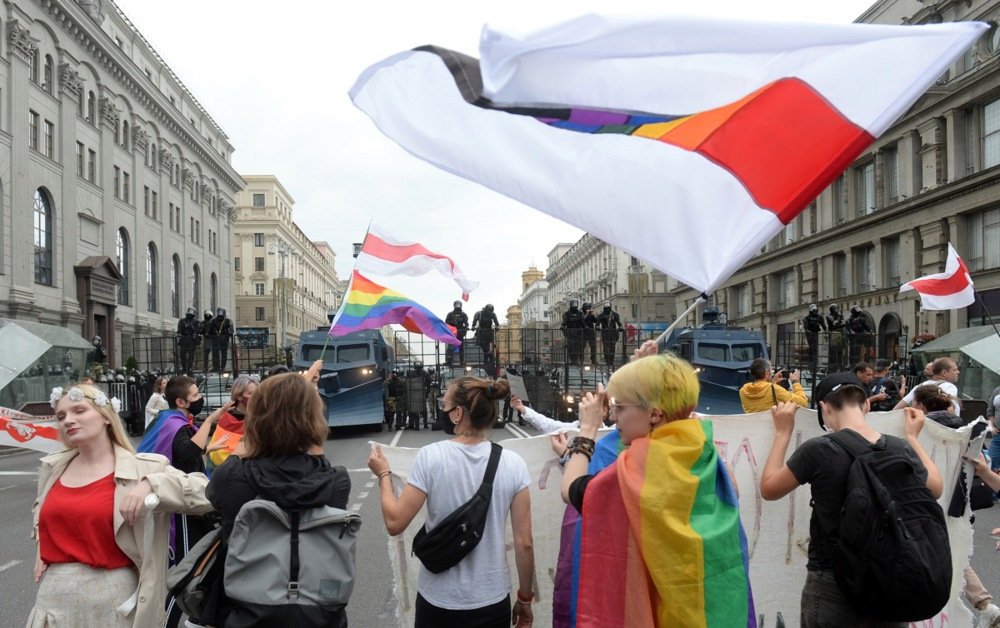
LGBT activists attend a protest rally against the results of the presidential elections, Minsk, Belarus, 06 September 2020. Photo: EPA-EFE/STRINGER
Belarus has modified its official definition of pornography to include the depiction of “non-traditional sexual relations and/or sexual behaviour”, according to an amendment published on the country’s legal portal on Thursday.
The Culture Ministry revised its 2007 regulations on the distribution and sale of “erotic materials”, which define pornography as content with a “vulgarly naturalistic, disgustingly cynical, indecent fixation on sexual intercourse” that “insults the honour and dignity of the individual, reducing them to the level of animal instincts”.
The country’s updated definition of pornography now includes “homosexuality and lesbian love”, as well as bisexuality and polyamory, as well as many other types of “non-traditional sexual relations”.
In Belarus, the production, distribution, or possession with intent to distribute or promote materials deemed “pornographic” is punishable by up to four years behind bars. It is not yet clear what kind of “depictions” of “non-traditional relations” will fall under the new regulations.
In February, Belarus’ Prosecutor General Andrey Shved said that the country’s parliament was set to review a draft law punishing the promotion of “abnormal relationships, pedophilia and the voluntary refusal to have children”.
The country’s leader Alexander Lukashenko said in March 2023 that “non-traditional trends”, including families choosing not to have children, represented an attempt to “depopulate and weaken” Belarus.
Experts have noted a tendency for Russia and Belarus to copy each other’s repressive legislation in recent years. In March, police in Russia arrested the managers of a gay club in the country’s first prosecution of members of what it calls the “international LGBT movement”, which was deemed “extremist” by the country’s Supreme Court in November.
